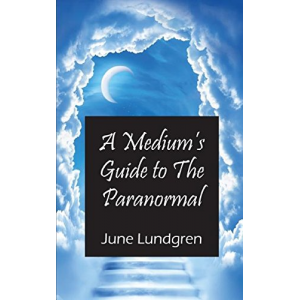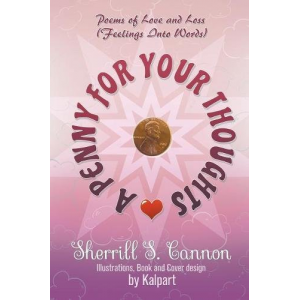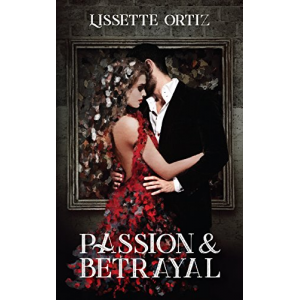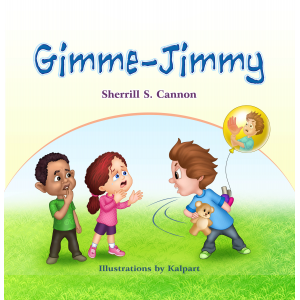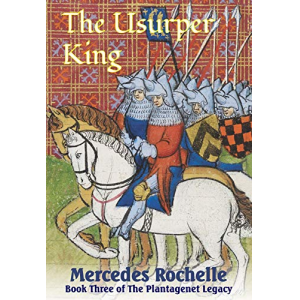The Bookshelf
🔗 http://katebrauning.com/2012/02/06/review-the-accidental-anarchist/- Author
- Book
- Story behind the book
- Media Links
- Reviews

Bryna Kranzler
About
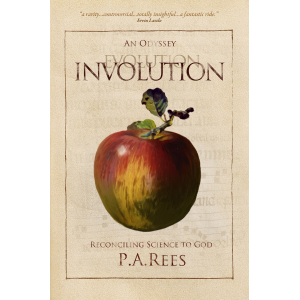
Involution-An Odyssey Reconciling Science to God
Description
<p>“<em>We are not human beings having a spiritual experience; we are spiritual beings having a human experience.”(</em>Teilhard de Chardin<em>)</em></p><p><span style="line-height:1.6em;"><em>Involution-An Odyssey Reconciling Science to God </em> is as layered as a French cassoulet, as diverting, satisfying and as rich. Each reader will spoon this book differently. On the surface it seems to be a simple and light-hearted poetic journey through the history of Western thought, dominantly scientific, but enriched with painting and music. Beneath that surface is the sauce of a new evolutionary idea, involution; the informing of all matter by consciousness, encoded and communicating throughout the natural world. A book about the cathedral of consciousness could have used any language to paint it, but science is perhaps most in need of new vision, and its chronology is already familiar.</span></p><p><span style="line-height:1.6em;">The author offers a bold alternative vision of both science and creation: she suggests that science has been incrementally the recovery of memory, the memory of evolution/involution</span><em style="line-height:1.6em;">.</em></p><p>“<em> Involution proposes that humans carry within them the history of the universe, which is (re)discovered by the individual genius when the time is ripe. All is stored within our DNA and awaits revelation. Such piecemeal revelations set our finite lives in an eternal chain of co-creation and these new leaps of discovery are compared to mystical experience</em>” (From a reviewer)</p><p>Each unique contributor served the collective and universal return to holism and unity. Thus the geniuses of the scientific journey, like the spiritual visionaries alongside, have threaded the rosary of science with the beads of inspiration, and through them returned Man to his spiritual nature and origin.</p><p><span style="line-height:1.6em;">The separation between experience and the rational intellect of science has, by modelling memory as theory, separated its understanding from the consciousness of all, and perceives mind and matter as separate, God and Man as distinct. This work is a dance towards their re-unification: Saints and scientists break the same bread.</span></p><p><span style="line-height:1.6em;">All of time and all the disciplines of science are needed for the evidence. Through swift (and sometimes sparring) Cantos of dialogue between Reason and Soul, Philippa Rees takes the reader on a monumental journey through the history of everything – with the evolution of man as one side of the coin and involution the other. The poetic narrative is augmented by learned and extensive footnotes offering background knowledge which in themselves are fascinating. In effect there are two books, offering a right and left brain approach. The twin spirals of a DNA shaped book intertwine external and internal and find, between them, one journey, Man’s recovery of Himself., and (hopefully) the Creation’s recovery of a nobler Man.</span></p><p><span style="line-height:1.6em;">From the same review “</span><em style="line-height:1.6em;">The reader who finishes the book will not be the same as the one who began it. New ideas will expand the mind but more profoundly, the deep, moving power of the verse will affect the heart.</em></p><p><em>(Marianne Rankin: Director of Communications, Alister Hardy Trust)</em></p><p> </p>
Story Behind The Book
Though I never knew him, I grew up hearing stories of my grandfather's adventures and misadventures that led to him getting sentenced to death three times in the early 1900s in Russia (and living to tell, and write, about it). But it wasn't until I spent several years with his diaries, and with his voice in my head, that I began to get to know him. And while he was, indeed, daring, impulsive and completely unconcerned about consequences (in a manner that recalled a cross between Maxwell Smart and Bart Simpson), that I began to understand that he stood up for what he believed in, despite the personal risk.
Media Links
Reviews
<p><span style="color:rgb(0,0,0);font-family:verdana, arial, helvetica, sans-serif;font-size:small;line-height:normal;">"The Accidental Anarchist is a profound testament to the power of faith, and to the continued survival of the Jewish people."</span><br style="color:rgb(0,0,0);font-family:verdana, arial, helvetica, sans-serif;font-size:small;line-height:normal;" /><span style="color:rgb(0,0,0);font-family:verdana, arial, helvetica, sans-serif;font-size:small;line-height:normal;">--</span><em style="color:rgb(0,0,0);font-family:verdana, arial, helvetica, sans-serif;font-size:small;line-height:normal;">Elie Wiesel</em><br style="color:rgb(0,0,0);font-family:verdana, arial, helvetica, sans-serif;font-size:small;line-height:normal;" /><br style="color:rgb(0,0,0);font-family:verdana, arial, helvetica, sans-serif;font-size:small;line-height:normal;" /><span style="color:rgb(0,0,0);font-family:verdana, arial, helvetica, sans-serif;font-size:small;line-height:normal;">"The Accidental Anarchist" ...</span><span style="color:rgb(0,0,0);font-family:verdana, arial, helvetica, sans-serif;font-size:small;line-height:normal;"> reads and feels like a great novel... [N]o Hollywood screenwriter could ever invent such an extraordinary tale..."</span><br style="color:rgb(0,0,0);font-family:verdana, arial, helvetica, sans-serif;font-size:small;line-height:normal;" /><span style="color:rgb(0,0,0);font-family:verdana, arial, helvetica, sans-serif;font-size:small;line-height:normal;">--</span><em style="color:rgb(0,0,0);font-family:verdana, arial, helvetica, sans-serif;font-size:small;line-height:normal;">Robert Avrech, Emmy Award-winning screenwriter</em><br style="color:rgb(0,0,0);font-family:verdana, arial, helvetica, sans-serif;font-size:small;line-height:normal;" /><br style="color:rgb(0,0,0);font-family:verdana, arial, helvetica, sans-serif;font-size:small;line-height:normal;" /><span style="color:rgb(0,0,0);font-family:verdana, arial, helvetica, sans-serif;font-size:small;line-height:normal;">"...The adventures in this novel are many, and unforeseen</span><span style="color:rgb(0,0,0);font-family:verdana, arial, helvetica, sans-serif;font-size:small;line-height:normal;">.</span><span style="color:rgb(0,0,0);font-family:verdana, arial, helvetica, sans-serif;font-size:small;line-height:normal;">.. It's all part and parcel of the book's captivating plot that gets a big boost from the writing and the characterization."</span><br style="color:rgb(0,0,0);font-family:verdana, arial, helvetica, sans-serif;font-size:small;line-height:normal;" /><span style="color:rgb(0,0,0);font-family:verdana, arial, helvetica, sans-serif;font-size:small;line-height:normal;">--</span><em style="color:rgb(0,0,0);font-family:verdana, arial, helvetica, sans-serif;font-size:small;line-height:normal;">BlogCritics.com</em><br style="color:rgb(0,0,0);font-family:verdana, arial, helvetica, sans-serif;font-size:small;line-height:normal;" /><br style="color:rgb(0,0,0);font-family:verdana, arial, helvetica, sans-serif;font-size:small;line-height:normal;" /><span style="color:rgb(0,0,0);font-family:verdana, arial, helvetica, sans-serif;font-size:small;line-height:normal;">"A story of the chaotic times of Eastern Europe in the 1900s, The Accidental Anarchist is a riveting read about one of the truly unique characters and stories of history that is not often heard about."</span><br style="color:rgb(0,0,0);font-family:verdana, arial, helvetica, sans-serif;font-size:small;line-height:normal;" /><span style="color:rgb(0,0,0);font-family:verdana, arial, helvetica, sans-serif;font-size:small;line-height:normal;">--</span><em style="color:rgb(0,0,0);font-family:verdana, arial, helvetica, sans-serif;font-size:small;line-height:normal;">Midwest Book Review</em><br style="color:rgb(0,0,0);font-family:verdana, arial, helvetica, sans-serif;font-size:small;line-height:normal;" /><br style="color:rgb(0,0,0);font-family:verdana, arial, helvetica, sans-serif;font-size:small;line-height:normal;" /><span style="color:rgb(0,0,0);font-family:verdana, arial, helvetica, sans-serif;font-size:small;line-height:normal;">"A splendid, highly-recommended companion piece for students confronting the late-19th & early-20th century pivotal point in modern world history… It is an extension of the heart of ALL QUIET ON THE WESTERN FRONT, the soul of searing Gulag writings & the pathos and futility of CATCH-22--suffused at every turn with the grit and wit of mendicant Judaism." </span><br style="color:rgb(0,0,0);font-family:verdana, arial, helvetica, sans-serif;font-size:small;line-height:normal;" /><span style="color:rgb(0,0,0);font-family:verdana, arial, helvetica, sans-serif;font-size:small;line-height:normal;">--</span><em style="color:rgb(0,0,0);font-family:verdana, arial, helvetica, sans-serif;font-size:small;line-height:normal;">Herman Mast III, Emeritus, Department of History, UCONN</em><br style="color:rgb(0,0,0);font-family:verdana, arial, helvetica, sans-serif;font-size:small;line-height:normal;" /><br style="color:rgb(0,0,0);font-family:verdana, arial, helvetica, sans-serif;font-size:small;line-height:normal;" /><span style="color:rgb(0,0,0);font-family:verdana, arial, helvetica, sans-serif;font-size:small;line-height:normal;">"It is somewhat of a miracle that this book even exists. Written from the more than one hundred year old diaries of her grandfather, Bryna Kranzler has captured an amazing story of survival, certain but somehow avoidable death, dire conditions of climate, hunger on the verge of starvation, all taken with humor and conviction...</span><br style="color:rgb(0,0,0);font-family:verdana, arial, helvetica, sans-serif;font-size:small;line-height:normal;" /><br style="color:rgb(0,0,0);font-family:verdana, arial, helvetica, sans-serif;font-size:small;line-height:normal;" /><span style="color:rgb(0,0,0);font-family:verdana, arial, helvetica, sans-serif;font-size:small;line-height:normal;">The impact of this book is extraordinary. It reads like fiction, but all of it is true. It happened. From the diaries of a man who took the time to write an impossible history, all true, exciting and devastating."</span><br style="color:rgb(0,0,0);font-family:verdana, arial, helvetica, sans-serif;font-size:small;line-height:normal;" /><em style="color:rgb(0,0,0);font-family:verdana, arial, helvetica, sans-serif;font-size:small;line-height:normal;">--Dick Lofton, Endpaper Review</em></p> <p><span style="color:rgb(0,0,0);font-family:verdana, arial, helvetica, sans-serif;font-size:small;line-height:normal;">"This story is told by Bryna Kranzler, the granddaughter of Jacob Marateck. Ms. Kranzler’s captivating writing technique envelops the reader with Marateck’s magnetic personality... </span><span style="color:rgb(0,0,0);font-family:verdana, arial, helvetica, sans-serif;font-size:small;line-height:normal;">These conversations, events that should have been muddied by the ravages of time and history, are rewritten with incredible detail and exquisite narrative that pushes the reader ever-onward, hanging upon baited breath with each sentence. Yet between Marateck’s notes and Ms. Kranzler’s consistent ability to wrap it into moving prose, this memoir reads much more like a thrilling novel. In some cases, truth is indeed stranger than fiction... </span><br style="color:rgb(0,0,0);font-family:verdana, arial, helvetica, sans-serif;font-size:small;line-height:normal;" /><span style="color:rgb(0,0,0);font-family:verdana, arial, helvetica, sans-serif;font-size:small;line-height:normal;">Marateck bares his heart through his carefully detailed notes. They become a symphony representing a brilliant, singularly valiant human life enveloped within the loving care of the author’s loving dedication. The Accidental Anarchist begins with a powerful allegro of youth, in which Marateck throws his life about in a careless affront to its sacred value."</span><br style="color:rgb(0,0,0);font-family:verdana, arial, helvetica, sans-serif;font-size:small;line-height:normal;" /><em style="color:rgb(0,0,0);font-family:verdana, arial, helvetica, sans-serif;font-size:small;line-height:normal;">--New York Journal of Books</em></p>
